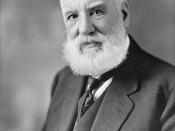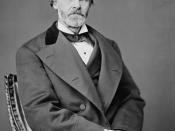Darren Schaefer
Dr. Foran
English 102
10 March 2002
Antitrust Lawsuits, Monopolies, and Anticompetitive Business Practices in Today's Economy
In July of 1890, the Sherman Antitrust was passed by the U.S. Congress through the efforts of Senator John Sherman of Ohio. That act is the basic federal enactment that regulates the operations of corporate trusts. The act declared illegal every contract, combination in the form of trust or otherwise, or conspiracy, in restraint of trade or commerce among the several States, or with foreign nations. Criminal penalties were provided for violators of the law, and aggrieved persons were entitled to recover three times the amount of losses suffered as a result of the violation. The Sherman Act has been amended and supplemented by several subsequent enactments. Most notable among these enactments was the Clayton Antitrust Act of 1914. The Clayton Antitrust Act was sponsored by Alabama congressman Henry De Lamar Clayton.
An amendment to the Sherman Antitrust Act, it is designed to deal with new monopolistic practices, the act contained three types of provisions, covering corporate activities, remedies for reform, and labor disputes. As well as covering corporate activities; it declared illegal such practices as, local price-cutting to freeze out competitors, exclusive selling or leasing, and other forms of discrimination. Those provisions also forbid intercorporate stock holdings, thereby lessening competition, and interlocking directorates, in which a person or persons control an industry by serving simultaneously as directors of related companies. While permitting individual suits for damages from discrimination or exclusive selling or leasing, it made directors or officers of corporations responsible for infractions of the antitrust laws. Appeals were directed to the Federal Trade Commission, which was, in part, created to enforce the antitrust provisions of the act and which was empowered to issue cease-and-desist orders when illegal activities...



In Depth essay
The essay was very in depth, but it had lots of grammatical errors. There were comma's where there should have been periods. There were semicolons where there should have been colons
1 out of 1 people found this comment useful.